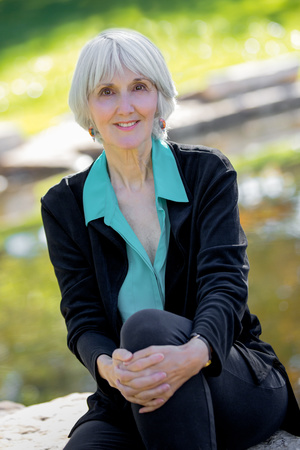There’s one uncomfortable and recurring revelation in Klebold’s memoir, which is that she didn’t truly know her own son. In fact, they were living in parallel universes. Of her two boys, Dylan was the one she thought she'd never have to worry about. Nonetheless, later that morning he and his friend, Eric Harris, 18, took guns and explosives into Columbine high school in Littleton, Colorado. For nearly an hour, the pair roamed through their school with assault weapons, hunting down terrified classmates, before killing 12 students and one teacher, as well as wounding 21 others.
Three nights prior, Dylan had gone to the senior prom. “He’d had a great night,” Klebold writes, “and thanked me for buying his ticket.” 72 hours later and that affectionate memory had been replaced by complete confusion and utter sorrow. She hadn’t an inkling, she insists, that her son was dangerously depressed.
Ignorance is at the heart of A Mother’s Reckoning, which intimately recounts the most devastating experience a parent can endure: the death of a child and the nauseating realisation that you’ve failed to help them. For this, Klebold feels immeasurable guilt. She recalls being bewildered when someone asked her if she could ever forgive her son. “I was the one who let him down,” she explains, “not the other way around.”
Columbine is often referred to as the “deadliest high school shooting in U.S. history”. An investigation by ABC News published in 2014 identified at least 17 attacks and another 36 alleged plots against schools that were inspired by the Columbine massacre. In the aftermath, people wanted to know about the killers’ lives. Wayne and Kathy Harris have never spoken publicly about their son, Eric. For years, Tom and Sue also shunned the press out of fear.
However, when a victim’s father wrote to the family with questions about Dylan’s childhood, Klebold realised that she was withholding invaluable insight. Dylan grew up with happily married parents: a work-from-home father and a mother who worked with disabled college students. Yet despite his typical and loving childhood, Dylan had fallen off an emotional cliff. His parents didn’t know that he drank, or thought obsessively about ending his life. They didn’t know that he and his co-conspirator – who was charismatic and an alleged psychopath – had been accumulating weapons.
In retrospect, Klebold acknowledges signs of imminent danger, what experts call ‘leakage’, as if her son’s suffering were so seething it was visibly seeping out of him. She missed tell-tale signs of depression, which are infuriatingly similar to the symptoms of adolescence itself. She never uses Dylan’s “brain illness” as an excuse for his actions, however does wonder, “If suicide seems like the only way out of an existence so painful it has become intolerable, is that really an exercise of free will?”

Klebold’s agenda is to inform, but also to partially redeem herself. Early on she emphasises the difference between homicidal and suicidal urges, quoting clinical psychologist Dr. Dwayne Fusilier, who said, “I believe Eric went to the school to kill people and didn’t care if he died, while Dylan wanted to die and didn’t care if others died as well.”
This compulsion to defend her family is overshadowed only by her desire to disappear. She describes, “cringing like a frightened animal” in the years after Columbine, in which she lost 25 pounds and suffered severe panic attacks. She stumbled through the dissolution of her marriage, as well as radiation therapy for cancer. Klebold undoubtedly earns our empathy and admiration, despite her memoir serving as a cautionary tale, rather than an exoneration.
“I wish I had listened more instead of lecturing,” she writes. “I wish I had sat in silence with him instead of filling the void with my own words and thoughts; I wish I had acknowledged his feelings instead of trying to talk him out of them, and that I’d never accepted his excuses to avoid conversation”.
A Mother’s Reckoning is a harrowing read, smouldering with maternal love and bitter confusion. Informative and compelling, Klebold discusses various Columbine-related topics, including media sensationalism and bullying. Meanwhile, she’s constantly exploring the same question: who was her son? Was he her “sunshine boy” or the mass murderer he became during the last moments of his all-too-brief life? “To the rest of the world, Dylan was a monster,” she writes, “but I had lost my child.”
Inevitably, A Mother’s Reckoning raises far more questions than it answers. Klebold highlights significant problems surrounding how we deal with mental health. How should we think about moral culpability when it comes to psychiatric diagnoses? Why is Dylan’s violence a symptom of depression, whereas Eric's alleged psychopathy makes him responsible?
As painful as it is to revisit Columbine, A Mother’s Reckoning represents a conversation we must have to prevent these tragedies from recurring. Klebold never excuses her son’s crimes and it’s hard to criticise such an earnest account. She’s incredibly brave in noting her own omissions. However, what the reader ultimately observes is a difficult and frightening fact: Dylan Klebold wasn’t a “monster”. He was an ordinary teenager. Perhaps that’s the real tragedy, after all.





